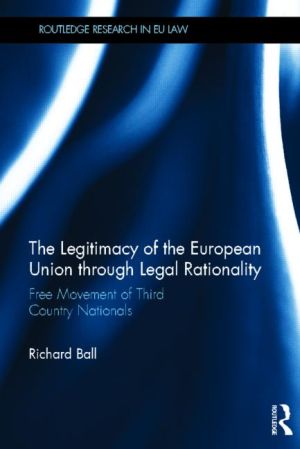
Third country nationals have an important effect on, and play an important part in, the economy of the European Union, a trend that is likely to increase over time. This importance could be expected to be reflected in the rights, in particular freedom of movement, granted to them under European Union Law. Political expediency is however shaped by world, regional and domestic influences that in turn determine the policy towards third country nationals and their legal rights to freedom of movement.
This book examines the concept of political legitimacy within the European Union through the principles of legal rationality, focusing in particular on the European Union's policy towards third country nationals. For Community legal doctrine to be rational it must display the requirements of formal, instrumental and substantive rationality, each mutually exclusive and essential. Analysis of free movement rights for third country nationals is provided in three discrete doctrinal areas before a critical evaluation of them is conducted through the lens of legal rationality and set within the possible justification matrix of factors that make up policy formation. It is concluded that European Union Law towards third country nationals is defective, lacks legitimacy and suggestions are made to correct the problems identified.